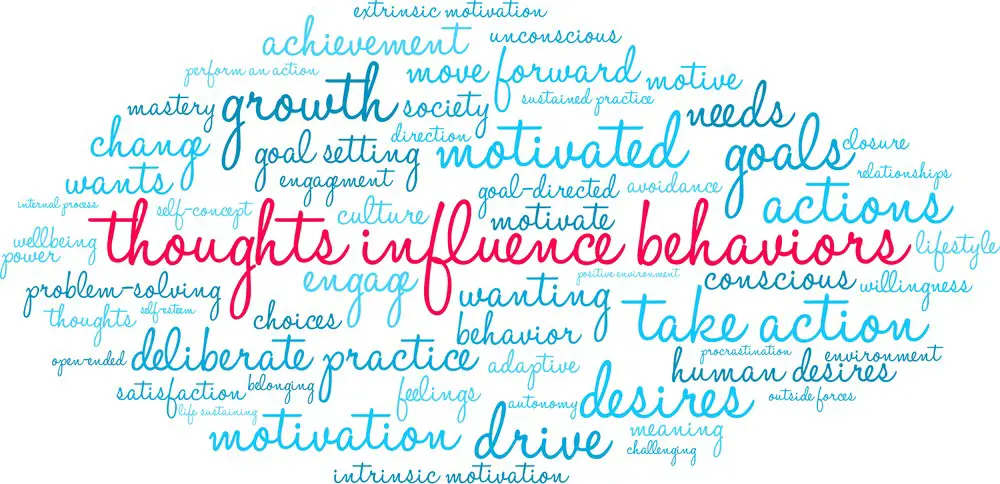As a BetterHelp affiliate, we receive compensation from BetterHelp if you purchase products or services through the links provided
Self-concept and self-esteem are interrelated aspects of an individual’s perception of themselves. Self-concept refers to the mental model we form about our abilities, traits, values, and roles in various social contexts. It encompasses our beliefs about who we are, what we can do, and how we relate to the external world. In contrast, self-esteem is a subjective evaluation of our self-worth, signifying how much we approve of and value ourselves.
A person’s self-concept and self-esteem can be influenced by various factors such as cultural norms, interpersonal relationships, personal experiences, and achievements. Since both aspects play critical roles in determining how individuals navigate through life, it is essential to understand their nuances and find ways to establish a healthy balance between the two.
Key Takeaways
- Self-concept is the collection of beliefs about oneself, while self-esteem reflects the evaluation of self-worth.
- Multiple factors, including cultural norms and personal experiences, shape self-concept and self-esteem.
- Cultivating a positive and well-balanced self-concept and self-esteem is crucial for overall well-being.

Understanding Self-Concept
Origins of Self-Concept
Self-concept refers to an individual’s perception of themselves, including their beliefs, abilities, personality, and character. The development of self-concept begins in early childhood and is influenced by various factors, such as family environment, cultural context, and personal experiences. Individuals form their self-concept by evaluating their strengths, interests, and values and through the feedback they receive from others.
Cognitive processes also play a crucial role in the formation of self-concept. As individuals gain more knowledge, their beliefs and opinions about themselves evolve. The ego, closely related to self-concept, mediates one’s identity and the external world.
Dimensions of Self-Concept
Self-concept consists of several dimensions, which offer different perspectives on an individual’s sense of self. These dimensions include:
- Physical self-concept: This dimension refers to how individuals perceive their physical traits, abilities, and appearance.
- Emotional self-concept: It relates to emotional areas, such as the awareness of one’s feelings and the ability to manage emotions in various situations.
- Social self-concept: This dimension focuses on interpersonal relationships, social skills, and how individuals perceive themselves within a social context.
- Intellectual self-concept: It reflects an individual’s perception of their cognitive abilities, problem-solving skills, and academic interests.
A unique set of factors, such as environmental, genetic, and cultural elements, influences each dimension mentioned above. As a result, individuals develop distinct self-concepts throughout their lives.
In conclusion, understanding self-concept involves examining its origins, the factors contributing to its development, and the different dimensions shaping one’s perception of self. By recognizing these aspects, individuals can better understand their strengths, weaknesses, and overall sense of identity.
Comprehending Self-Esteem
Self-esteem is an individual’s subjective evaluation of their own worth, encompassing beliefs about oneself and emotional states that arise from those beliefs. It involves the perception of one’s self-image and self-confidence and is a crucial aspect of one’s self-identity.
Characteristics of Self-Esteem
An individual with high self-esteem typically exhibits the following traits:
- Confidence: Belief in one’s abilities and the capacity to achieve goals.
- Self-worth: A strong sense of one’s value, independent of external factors.
- Self-acceptance: A positive attitude towards oneself, including embracing strengths and weaknesses.
- Self-efficacy: The belief in one’s ability to complete tasks and meet challenges.
On the other end of the spectrum, individuals with low self-esteem may experience:
- Anxiety: Due to heightened sensitivity to criticism could contribute to mental health issues.
- Self-doubt: A lack of belief in their abilities may impede personal growth and motivation.
- Negative perception of self-image: An extensive focus on perceived weaknesses rather than strengths.
- Dependence on external validation: Seeking approval from others rather than self-validation.
Types of Self-Esteem
Stable Self-Esteem
Stable self-esteem involves a consistent and well-grounded sense of self-worth that is not easily shaken by events or external factors. People with stable self-esteem tend to maintain a healthy balance between self-acceptance and self-improvement and exhibit resilience in the face of challenges.
Unstable Self-Esteem
On the contrary, unstable self-esteem fluctuates frequently, depending on external circumstances and validation. For individuals with unstable self-esteem, their self-worth is often contingent upon their appearance, achievements, and the opinion of others. As a result, they may struggle with self-awareness and mental health, especially when faced with setbacks or criticism.
Influencing Factors
Developmental Factors
People experience various developmental factors during different life stages that may impact their self-concept and self-esteem. For example, during infancy, a child’s sense of self begins to form as they gradually acquire new skills and understand their environment. As they grow older, their self-concept continues to evolve, influenced by family dynamics, relationships, and social experiences.
Adolescence is a particularly important time for self-concept and self-esteem development. During this period, individuals compare their abilities and accomplishments to their peers more frequently. Factors like academic performance, intelligence, and competence play a significant role in how they perceive themselves, which may affect their self-esteem positively or negatively. Notably, gender and race can also impact self-concept during adolescence, as individuals may face different societal pressures and expectations.
External Influences
Various external influences shape an individual’s self-concept and self-esteem, such as:
- Social interactions: Positive or negative experiences during social encounters can influence how people perceive themselves and their relation to others, impacting their self-esteem.
- Culture: The cultural context, including its values and norms, can influence the development of self-concept and self-esteem. For example, some societies place more emphasis on individual achievements, while others focus on collective well-being.
- Family and relationships: Supportive family environments can foster positive self-concept and self-esteem. Conversely, if an individual experiences neglect or a lack of emotional support from their family, their self-esteem may suffer. The quality of their relationships can also impact their self-esteem, as healthy relationships tend to improve individuals’ overall sense of well-being.
- Work and academic settings: Achievements in work or academic life can bolster self-esteem, while challenges or setbacks can erode it. People may also compare themselves to their peers, affecting how they view their competence and abilities.
When facing external influences, individuals like Carl Rogers have argued that people should focus on their personal growth and development rather than seeking validation from others to build self-esteem. Stepping outside their comfort zone and focusing on their dreams and ambitions can contribute to a healthier self-concept.
In summary, developmental and external factors play crucial roles in shaping an individual’s self-concept and self-esteem. Recognition and understanding of these factors can help navigate life experiences and maintain positive self-worth.

Boosting and Maintaining a Healthy Self-Concept and Self-Esteem
Self-Awareness and Acceptance
Developing a positive self-concept starts with increasing self-awareness and acceptance. Psychologists like William James emphasize the importance of understanding one’s identity and congruence in thoughts, feelings, and actions. By practicing self-reflection and acknowledging strengths and weaknesses, individuals can foster a realistic and balanced view of themselves. Embracing one’s unique characteristics helps build self-esteem and cultivate strong self-worth.
Goal Setting and Achievement
Setting specific and achievable goals is crucial for boosting self-esteem and promoting self-actualization. By establishing and working towards these targets, individuals gain a sense of accomplishment and hope for future success. To be effective, the goals should be:
- Specific: Clearly defined objectives allow individuals to track progress and measure success.
- Achievable: Realistic expectations ensure individuals maintain motivation and avoid feelings of failure.
By consistently setting and achieving goals, individuals enhance their self-concept and self-esteem, contributing to overall psychological well-being.
Frequently Asked Questions
What are the main components of self-concept?
There are three main components of self-concept: self-image, self-esteem, and the ideal self. Self-image refers to an individual’s perception of themselves, including physical appearance, skills, and abilities. Self-esteem is the evaluative component, which refers to the individual’s feelings of self-worth and value. The ideal self represents the person’s aspirations and what they would like to become.
How do self-concept and self-esteem interact with each other?
Self-concept and self-esteem are closely related. A person’s self-image feeds into their self-esteem as they evaluate different aspects of themselves. A positive self-image can lead to higher self-esteem, whereas a negative self-image may lower self-esteem. Additionally, the discrepancy between one’s self-image and ideal self can impact self-esteem, as achieving goals or falling short of aspirations can either boost or harm self-worth.
What are the similarities between self-concept and self-esteem?
Both self-concept and self-esteem are psychological constructs that involve an individual’s perception of themselves. They share a common focus on self-evaluation and contribute to an individual’s overall identity and sense of self. Additionally, both concepts are influenced by various factors such as personal experiences, social context, and cultural norms.
How do different self-concept types affect self-esteem?
Different self-concept types can impact self-esteem in various ways. A stable, consistent, and positive self-concept will likely result in higher self-esteem. However, an unstable or fragmented self-concept may lead to lower self-esteem as the individual struggles to understand their identity clearly. Similarly, a negative self-concept, characterized by self-doubt and self-critical thoughts, can result in lower self-esteem.
How is self-esteem differentiated from self-concept in psychology?
In psychology, self-esteem is considered a subset of self-concept. Self-concept encompasses an individual’s overall perception of themselves, including self-image and the ideal self, while self-esteem is the evaluative component. Self-esteem represents the person’s feelings of self-worth and value. In contrast, self-concept refers to a broader understanding of self that includes various factors such as abilities, appearance, and character traits.
What role does self-concept play in shaping self-esteem?
Self-concept plays a significant role in shaping self-esteem, forming the foundation for self-evaluation. A person’s self-image, beliefs about themselves, and their ideal self all contribute to the development of self-esteem. A positive self-concept leads to increased self-esteem, as individuals feel confident in their abilities and self-worth. Conversely, a negative self-concept may result in lower self-esteem, as the person experiences self-doubt and perceives themselves as less valuable.
- 3 Ways Wearing a Hat Can Help Lower Your Stress Levels - April 19, 2025
- Breaking the Silence: Why Men’s Mental Health Matters More Than Ever - April 15, 2025
- How to Transform a Home’s Patio Space into a Relaxing Space - March 23, 2025
This site contains affiliate links to products. We will receive a commission for purchases made through these links.



